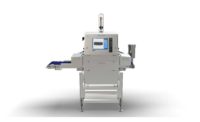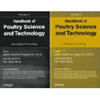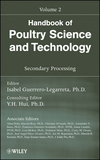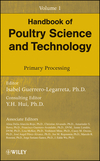Cargill Philippines Poultry Business Conference addresses evolving industry needs
Event stresses the vital role of strategic partnerships.

On Sept. 10, 2024, Cargill Philippines hosted its 2024 Poultry Business Conference at the Hilton Clark Sun Valley Resort in Clark, Pampanga. With the theme “Leading Business Through Synergistic Collaboration,” the event stressed the vital role of strategic partnerships in addressing the evolving needs of the poultry industry.
As the Philippines’ population grows, so does the demand for poultry, as chicken and eggs are staples in every household. With per capita consumption expected to rise by 3 to 5% and production growing steadily at 7%, the future of the poultry industry is promising. However, the bright outlook comes with its share of challenges including disease, climate conditions, market fluctuations and importation issues, all of which require collective action.
Cargill’s Poultry Business Conference brought together industry leaders, poultry owners and stakeholders to discuss emerging trends and strategies for the sector’s future. Several key themes emerged at the conference:
Rising consumption amidst economic pressures
Southeast Asia, with its growing preference for poultry, is set to become a significant player in the global market. Nonetheless, local productions are impacted by consumer spending that has yet to recover to pre-pandemic levels – thanks to the sticky inflation. The Department of Agriculture’s call for increased egg consumption to address oversupply issues and lower farm-gate prices highlights the need for adaptive strategies in this ever-changing market.
Breaking new grounds in poultry health
Experts have found that there is a clear pattern of microbiota growth in broilers, and as such, there is a need to understand the gut microbiome as a way to optimize animal health and performance. That being said, information about the effects of raw materials, feed additives, and farm conditions can be crucial to designing interventions to change microbiota on farms and skew them to perform better for the growth of our broilers. The increase of microbiota data can be used to understand and predict microbiome behavior in the future.
Balancing imports versus self sufficiency
While the U.S. targets more poultry exports to the Philippines, there is an ongoing debate about whether the country should rely on imports to meet demand or strive for self-sufficiency. With 560 accredited meat importers as of July 2021, the industry must navigate increased competition and evaluate its strategy for augmenting local production. While this is indeed tedious, there are opportunities for growth in the industry that can contribute to a blossoming economy in the future. The last few years have been slower than usual, but reports have predicted a 30% growth in the poultry market by 2030.
Closing the event, Sonny Catacutan, managing director of Cargill’s animal nutrition business in the Philippines, reiterated its commitment to supporting the growth of the local poultry sector. “Being at the center of our nation’s food systems, Cargill has a unique role and responsibility in making it more sustainable and resilient for generations to come,” said Catacutan. “Advancing food security in the Philippines is something that we cannot do on our own. Through partnerships with customers and industry stakeholders, we are driving progress and deepening our impact when it comes to productivity and efficiency in animal nutrition and health and feeding a growing Filipino population.”
With these forward-looking insights, the Poultry Business Conference has set a clear path for stakeholders to address future challenges and drive sustained growth.
Source: Cargill Inc.
Looking for a reprint of this article?
From high-res PDFs to custom plaques, order your copy today!








